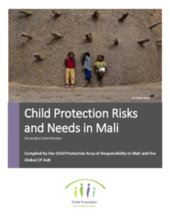Displaying 431 - 440 of 839
This study aimed to explore refugees’ experiences in Bangkok, assess agencies’ service delivery models, and strengthen their capabilities to address service gaps.
This comprehensive meta-analysis examined the pooled prevalence of depressive symptoms in ‘left-behind children (LBC)’ in China and its associated factors.
This article is a call to action for social workers who may now encounter Unaccompanied Minors (UAM) for the first time in their practice.
This paper describes specific challenges to family unity and child welfare among children in immigrant families resulting from immigration enforcement.
This article summarizes the situation of unaccompanied child (UAC) refugees in Greece in 2017/2018.
This article summarizes the situation of unaccompanied child (UAC) refugees in Greece in 2017/2018.
This review of secondary sources refers to information on child protection risks and violence against children in Mali, collected from 2016 to 2018.
The Alliance for Child Protection in Humanitarian Action and Better Care Network are calling for the prompt reunification of separated children with their families and to provide interim care in accordance with the UN Guidelines for Alternative Care of Children.
This article from JAMA explores the health consequences for children who have been separated from their parents at the U.S. border with Mexico.
In this editorial in the South African Journal of Psychology, Ann Skelton (a member of the Law Faculty at the University of Pretoria) writes about the recent family separation policy enacted at the US border with Mexico in which children of all ages arriving to the country with their parents or other family members were separated and placed into detention facilities.

